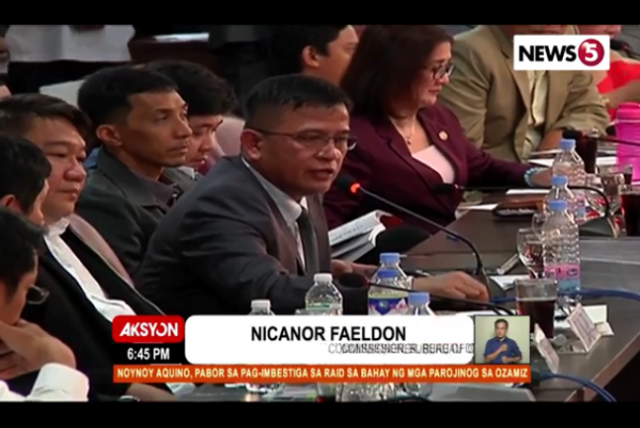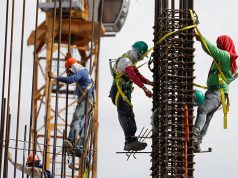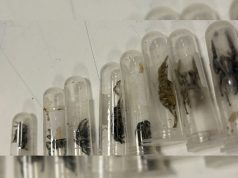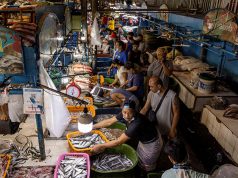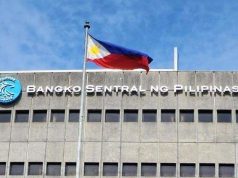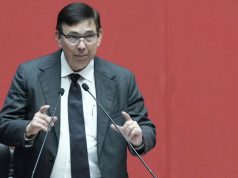MANILA – President Duterte wants Congress to appropriate P4.2 billion in the 2018 budget so the Bureau of Customs could hire more than 3,000 personnel—or double its current workforce—next year, Senate President Pro Tempore Ralph Recto said Sunday.
The call for beefing up the agency, now at the center of a firestorm with both chambers of Congress probing how some P6.5 billion of shabu was sneaked into the country in May, is diametrically opposed, however, to a proposal on the other extreme side: just abolish the BOC and outsource customs management of a reputable, competent global company.
The proposal was aired Sunday by OFW Party-list Rep. John Bertiz, who said contracting out Customs work may yet work, since the government has “tried everything” to reform the bureau. “One way, I think, this can be done is by the international bidding out of all Customs operations, including human resources, administration, finance, utility services, to a competent globally respected customs operator. This can be done using existing build-operate-transfer law and regulations,” Bertiz said in a briefing paper sent to media outlets.
In a separate statement, Senate President Pro Tempore Recto said the Executive had justified mobilizing billions to hire 3,000 more BOC employees as needed to fight smuggling,
In his message to Congress, Duterte said he is seeking P3.6 billion as the BOC’s budget for 2018. The money, he explained, will be used “to implement an aggressive campaign against smuggling which deprives us, on average, of more than P165.5 billion in potential revenues yearly.”
Recto said the chief executive stated this request in the “President’s Budget Message” for fiscal year 2018.
Duterte, according to Recto, enumerated the “anti-smuggling activities” to be funded by the proposed appropriations – “the enhancement of cyber security for all ports, and the acquisition of speedboats, firearms and other tactical equipment for better revenue collection.”
On top of the P3.6 billion for BOC operations is a separate P4.2 billion lodged in a “special purpose fund” in the budget for the recruitment of more personnel, according to Recto.
“In addition to the BOC’s budget, we have tucked in an additional P4.2 billion under the (Fiscal Year) 2018 Miscellaneous Personnel Benefits Fund (MPBF). This will finance the BOC restructuring, to fill up its more than 3,000 vacant positions, capacitate personnel, improve systems and modernize facilities,” Duterte said in his message to legislators.
Recto’s research showed that of the 6,264 authorized permanent positions in the BOC, only 3,031 are filled, leaving a vacancy of 3,233. “These are the items the Palace wants funded and filled,” he said.
Recto said he supports the President’s request “if it is linked to reforms and measurable productivity goals.”
His hypothetical pitch: “If BOC hires 1,000, and then spends P1.4 billion for their salaries, but if in return they will be able to collect, say, just 10 percent, or P16.5 billion, of the taxes lost to smuggling, then it is a good return to investment,” he said.
Recto said for next year, the “average per personnel collection quota is P210 million, based on a P637.1 billion total BOC collection target next year.”
“So kung ‘yung bagong empleyado na may sweldo na sabihin na natin P500,000, but will be able to yield tens of millions of pesos in additional revenue, bakit hindi,” he said.
“Next year, based on the BOC budget and goals, the agency will need P1 in order to collect P182. That’s the cost to collection ratio,” he said.
Controversy aside
The past two weeks, key Customs personnel led by Commissioner Nicanor Faeldon have been grilled in parallel hearings in the Senate and the House of Representatives, but Recto signalled he would still back the agency’s quest for more resources during the 2018 budget deliberations.
“Although mired in controversy, let us not lose sight of the fact that the BOC is a strategic agency which funds public services,” he said.
“For 2017, BOC is tasked to collect P468 billion. On a daily basis, that would be P1.28 billion. Its collection quota is 20 percent of total government tax income,” he said.
“Thus it can be said that 20 percent of the total length of roads built, classrooms constructed, medicine bought, textbooks distributed, families given health insurance will be financed by BOC collections,” he said.
“The government will not be able to deliver on its promises to the people if its second biggest supplier of funds is broken, malfunctioning and damaged,” he said, adding that with the resignation of some high BOC officials, a new team may have to be appointed.
Bertiz’s option: job it out
In contrast to Recto’s faith in the bureau, party-list Rep. Bertiz is throwing in the towel and pushing the outsource option.
Saying the 2016 Commission on Audit report on the agency proves the agency is “really resistant for reforms,” Bertiz said that even a Customs Modernization and Tariff Act (CMTA) or Republic Act 10863, approved on May 30, 2016 indicates that “real reform at Customs has been elusive.”
Bertiz added: “One solution not yet resorted to is the wholesale, complete, absolutely total overhaul of Customs operations. One step toward this is by contracting out to an international firm, all customs operations in the Philippines.
“One way, I think, this can be done is by the international bidding out of all Customs operations, including human resources, administration, finance, utility services, to a competent globally respected customs operator. This can be done using existing build-operate-transfer law and regulations.”
If this option were adopted, he said, “there must be a prohibition on hiring any current or former customs personnel.”
The implementation of the Management of Customs Operations Bid Contract can include civil society oversight and periodic review.
While Customs Operations are contracted out, a multi-sectoral Public-Private Customs Overhaul Commission can map out and implement the building from the ground up a totally new Bureau of Customs. No absorption of current personnel. Surely some contentious issues would need to be ironed out, including relevant civil service laws and regulations.
Bertiz said, “building a new Bureau of Customs might take about seven to ten years. Then there will have to be a transition phase to enable the new bureau to run customs operations that meet international standards.”
“Perhaps an Executive Order by President Rodrigo Roa Duterte can get all these done,” Bertiz said. “The BOT Law and regulations we already have,” he added.

